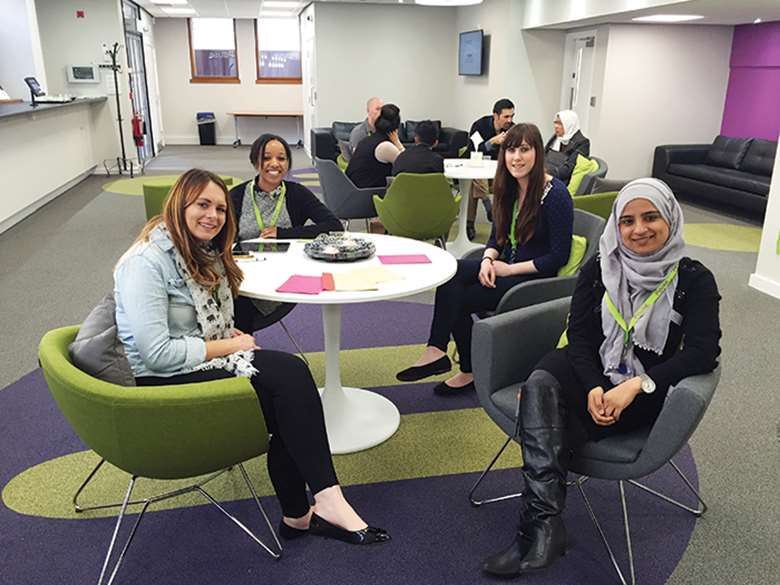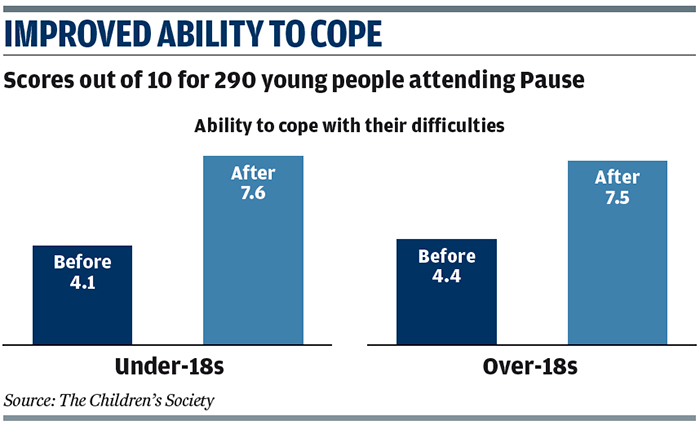Speedy access to mental health support
Emily Rogers
Thursday, May 4, 2017
Pause drop-in centre offers young people prompt help and advice on mental health problems without the need to make appointments.

PROJECT
Forward Thinking Birmingham's Pause service
PURPOSE
To enable under-25s to access immediate support for emotional and mental health difficulties
FUNDING
Pause is sub-contracted to The Children's Society by Birmingham Women's and Children's NHS Foundation Trust for £500,000 a year
BACKGROUND
Birmingham's three clinical commissioning groups started a tender process in 2014 for a new children and young people's mental health service. Birmingham Children's Hospital brought together a consortium of agencies to bid for the service, including The Children's Society, which proposed the idea for the Pause drop-in centre as a means of extending access to mental health support for more young people. The charity delivers Pause as part of Forward Thinking Birmingham, the new service delivered by the consortium since April last year.
ACTION
Pause is an open-access, drop-in mental health service located in Birmingham city centre, enabling children and young people to access early support without referral, waiting or appointments. Support is delivered by a team of nine therapists, counsellors and youth workers, and around 25 trained volunteers, overseen by manager Sarah Cresswell.
Young people access Pause after hearing about it from their GP, from Forward Thinking Birmingham's 24-seven Access Centre, or increasingly, from their peers. The centre has the phrase, "A space to talk about life and real feelings" displayed across the front - a slogan devised by young people. There is no reception desk. Instead, visitors are greeted in the café-style entrance area by a Pause therapist, youth worker or volunteer, who introduces them to the services on offer. These include use of iPads with an app about common mental health conditions and how to manage them, a library of books and magazines, and a programme of open-access workshops. The workshops focus on issues that frequently come up such as anxiety and depression and approaches such as mindfulness. A parent support group is also offered.
The staff member or volunteer invites each visitor to sit down and chat about the issues they are facing. The centre has five counselling rooms, but young people often prefer to chat in the bustling communal area. Young people themselves decide whether they need follow-up support, the type of support and the number of sessions. This could include therapy such as cognitive behavioural therapy and solution-focused therapy.
"One thing young people say helps is the fact they can come back when they need to rather than when their appointment is," says Rob Willoughby, Midlands area director for The Children's Society.
Young people who come to the centre are invited to register as a Pause service user. Out of 400 to 500 monthly visitors, between 10 and 15 are referred to higher-level clinical services in the Forward Thinking Birmingham pathway. A handful each month require crisis support, triggering a call to Forward Thinking Birmingham's crisis team, who can intervene within 30 minutes.
Willoughby says Pause challenges current models for child and adolescent mental health services where young people can face long delays and thresholds for intervention are high.
"A lot of areas are struggling with capacity and don't quite know how to meet the needs out there. Pause is part of the answer."
OUTCOME
Pause welcomed 4,263 visitors in its first nine months. Anxiety was the most common issue young people came in with followed by depression and low mood, anger, stress, and family difficulties. Just over half were first-time visitors and about 30 per cent of these received formal one-to-one therapeutic support.
Evaluation forms completed by 290 visitors at the end of last year showed improvements in young people's ability to deal with their issues. Before visiting the service under-18s scored their ability to cope at 4.1 out of 10 on average, rising to 7.6 after their visit. For over-18s, the average score increased from 4.4 to 7.5.

If you think your project is worthy of inclusion, email supporting data to derren.hayes@markallengroup.com




